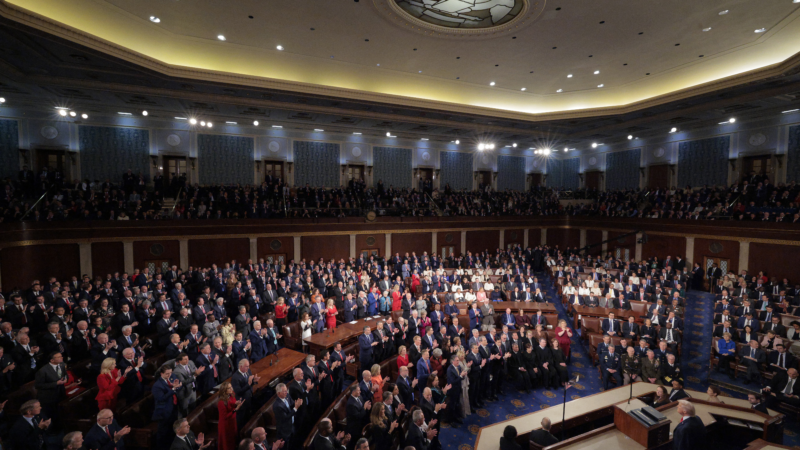The job market is showing signs of weakness as Trump’s tariffs take effect
The job market weakened sharply during the late spring and early summer as President Trump’s tariffs began to take effect.
U.S. employers added just 73,000 jobs in July, according to a report Friday from the Labor Department, while job gains for May and June were largely erased. The unemployment rate inched up to 4.2%.
Health care was one of the few sectors with solid job growth last month. The federal government shed 12,000 jobs in July and has lost some 84,000 workers since the beginning of the year. Tens of thousands of additional federal workers have taken buyouts but are still counted as employed through the end of September.
Tariff uncertainty hits manufacturing
Factories shed 11,000 jobs in July. Domestic manufacturers are supposed to be the beneficiaries of the president’s trade policies. But factory managers complain that uncertainty over import taxes has depressed orders and other activity. The federal government has been charging a 10% tax on nearly everything the U.S. imports since April, and higher tariffs are set to take effect on many goods next week.
“These tariff wars are beginning to wear us out,” one anonymous factory manager said in a survey released Friday by the Institute for Supply Management. “There is zero clarity about the future, and it’s been a difficult few months trying to figure out where everything is going to land and the impact on our business. So far, tremendous and unexpected costs have been incurred.”
The unemployment rate rose in July even as nearly 40,000 people dropped out of the workforce. The share of adults who are working or looking for work has fallen by half a percent in the last year.
The weakness in the job market is likely to amplify calls for the Federal Reserve to lower interest rates. The central bank held rates steady earlier this week, out of concern that rising tariffs would put more upward pressure on prices.
Despite the slowdown in hiring, wages continue to climb. Average wages in July were up 3.9% from a year ago, which is likely more than enough to outpace inflation.
When a horse whinnies, there’s more than meets the ear
A new study finds that horse whinnies are made of both a high and a low frequency, generated by different parts of the vocal tract. The two-tone sound may help horses convey more complex information.
Trump’s many tariff tools mean consumer prices won’t go down, analysts say
The Supreme Court struck down President Trump's signature tariffs. But the president has other tariff tools, and consumers shouldn't expect cheaper prices anytime soon, economists say.
Hundreds of American nurses choose Canada over the U.S. under Trump
More than 1,000 American nurses have successfully applied for licensure in British Columbia since April, a massive increase over prior years.
Tax credits for solar panels are available, but the catch is you can’t own them
Rooftop solar installers are steering customers toward leases instead of purchases. Federal tax credits for purchased systems have ended but are still available for leased ones.
5 takeaways from Trump’s State of the Union address
President Trump hit familiar notes on immigration and culture in his speech Tuesday night, but he largely underplayed the economic problems that voters say they are most concerned about.
China restricts exports to 40 Japanese entities with ties to military
China on Tuesday restricted exports to 40 Japanese entities it says are contributing to Japan's "remilitarization," in the latest escalation of tensions with Tokyo.







